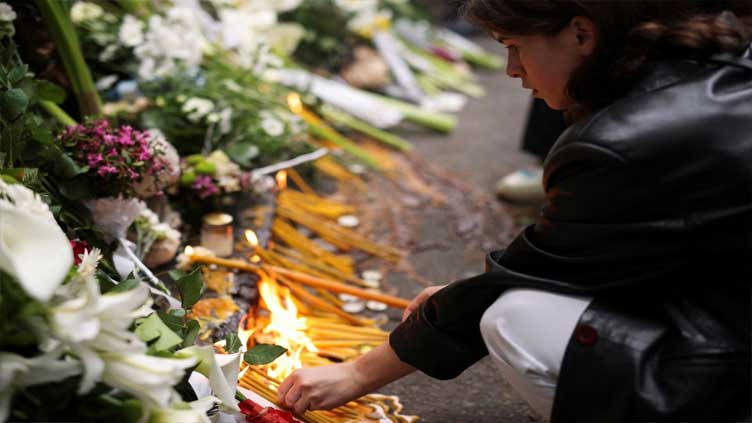Serbians surrender over 3,000 pieces of weapons after mass shootings

World
Serbians surrender over 3,000 pieces of weapons after mass shootings
BELGRADE (Reuters) - Serbians have surrendered more than 3,000 illegal weapons and parts in the first two days of a gun amnesty introduced after two mass shootings in which 17 people were killed, President Aleksandar Vucic said on Wednesday.
The amnesty was launched on Monday after a 13 year-old schoolboy with two handguns allegedly killed eight pupils and a security guard. Six other pupils and a teacher were wounded.
He is now in custody and undergoing a psychological evaluation but cannot be held criminally responsible due to his young age. Police said he had confessed to the shooting.
Last Thursday, a man brandishing an assault rifle and a pistol killed eight and wounded 14 people in two villages in central Serbia. A 21-year-old suspect is now in custody.
Vucic said people so far surrendered over 3,000 pieces of weaponry, without specifying what kind.
In previous gun amnesties launched over past two decades, people handed over banned military-grade arms, hunting weapons, handguns, and also barrels, locking mechanisms and other parts.
Tens of thousands of rounds of ammunition have also been handed in.
"That's good news, because there's so much less risk involved," Vucic said, speaking on television.
Under the terms of the amnesty, people are invited to hand over illegal weapons including military-grade, legally-owned arms they no longer want, ammunition, and ordnance, anonymously and without fear of prosecution.
Police departments urged people who owned explosives or ordnance not to carry them to police stations but instead to await trained personnel for their removal and disposal.
Earlier, Vucic announced additional checks of registered gun owners and shooting ranges, a greater police presence in schools, and changes to the criminal code that envision longer jail terms for weapons-related crimes.
Also on Wednesday, police said they detained the father of the suspect in the last week's shooting in central Serbia, the Tanjug news agency reported.
Serbia has a deeply entrenched gun culture and along with the rest of the Western Balkans is awash with military-grade weapons and ordnance in private hands after the wars of the 1990s that tore apart the former Yugoslavia.

